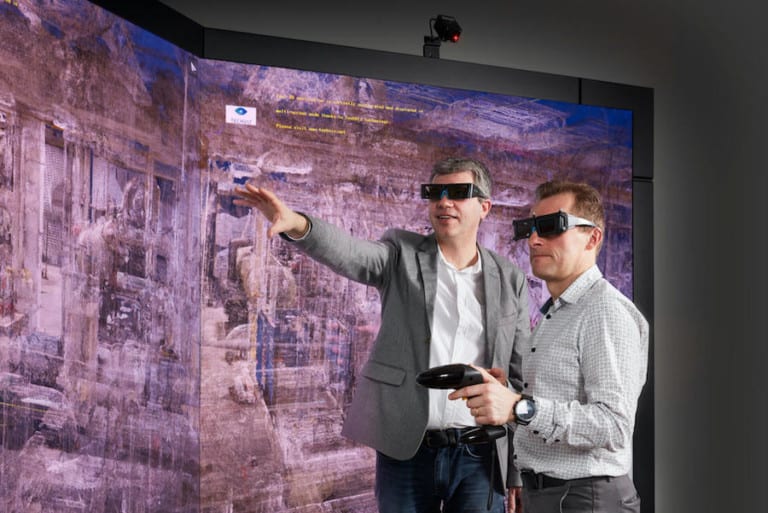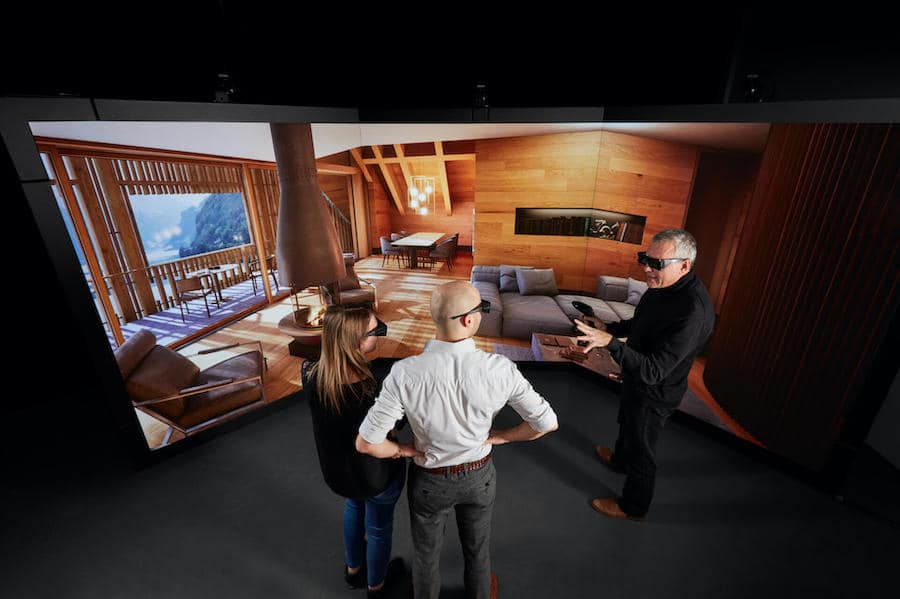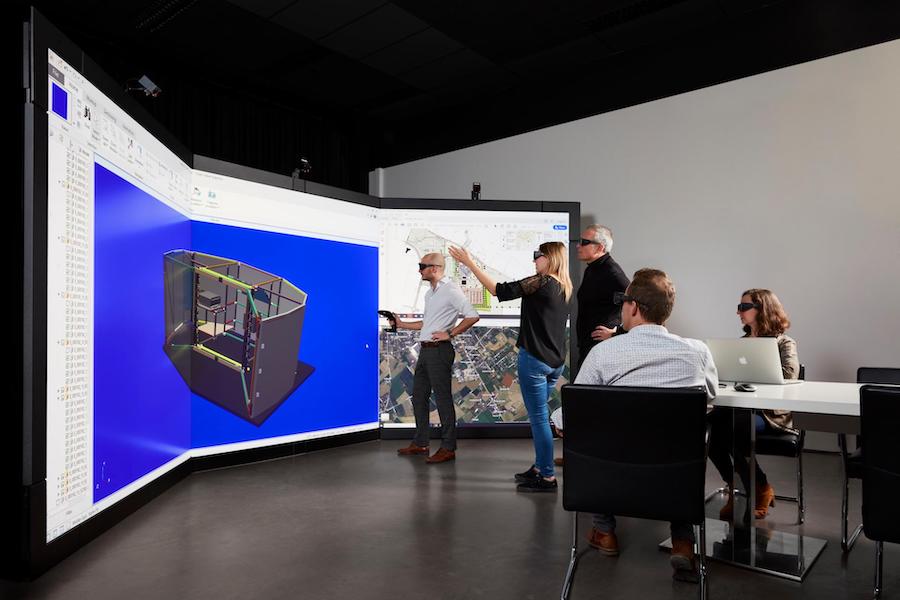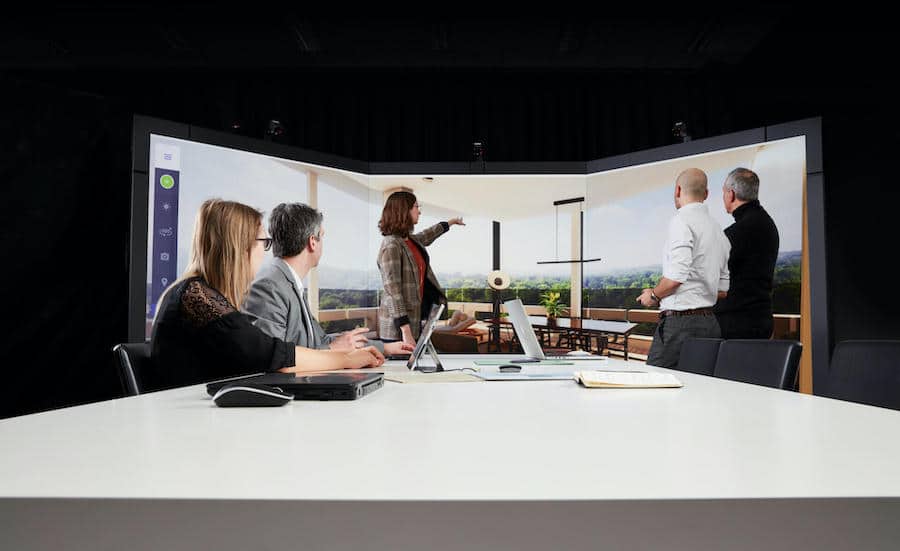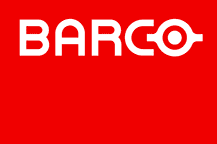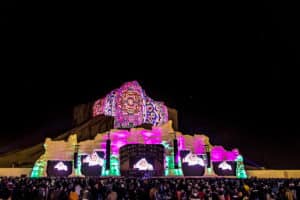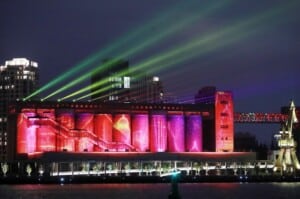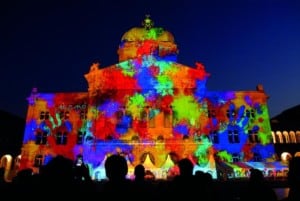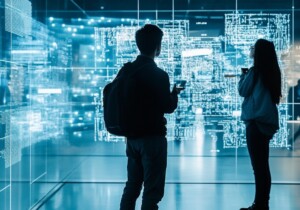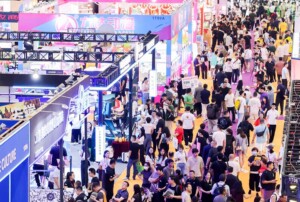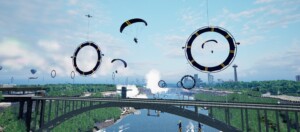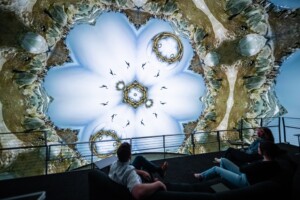by Barco
Virtual reality (VR) has long been seen as a gimmick for the gaming world only. But in recent years, the industry is poised for growth as the technology has been gaining popularity in professional applications like the Architecture, Engineering and Construction industry, research and training environments and the automotive sector, to name but a few.
According to this Capgemini survey of manufacturing companies across the world, over 80% of the interviewees say that virtual reality will become mainstream in their organization before 2023. In this article, we’ll look at the benefits of using VR in these new business applications.
An interactive sales narrative
Virtual reality is the closest thing we have to actually being inside a new space. It is this ability that separates the technology from other traditional visualization methods like sketches and preliminary models.
VR tools make your products or designs more tangible for potential customers. This makes VR a great marketing instrument for businesses. Its immersive aspect allows you to make your story more compelling and highlight your competitive advantages.
Imagine you’re trying to sell a kitchen and your customers are doubting about the colours of the cupboard doors. In just a matter of seconds, you can make custom adaptations and they immediately can see and even experience the new design.
And with the right tools, this is also scalable to bigger projects and constructions of real estate like new destination resorts. 3D visualization makes it easier to sell and upsell with a shorter decision time for your stakeholders.
VR as a business efficiency booster
Traditional design ways with scale models are time-consuming and 2D mock-ups have their limitations. Also, it’s not always easy for everyone to translate a 2D source into a 3D vision in their mind. VR gives you the chance to discuss and demonstrate the design directly in a 3D immersive collaborative environment, reducing the number of iterations, meetings and emails.
Manufacturers can apply updates virtually or visualize changes before the actual production saving time in the different pre-production decision-making phases. Greater predictability and improved collaboration lead to efficient performances, a reduction in time-to-market and faster project delivery. For example, in 2019, Bugatti used VR to design its newest luxury car and the manufacturer claims it enabled them to reduce the design time by a factor of three!
In addition, VR can also boost efficiency by enabling Big Data Visualization. The capabilities of immersive technologies and VR research allow for quicker insights and analysis of complex 3D data sets.
Saving time = saving money
Frequent design changes and mistakes can really drive up costs. The installation of a VR system is a viable business investment in increasing the efficiency of the prototype evaluation and development processes.
BMW engineers and designers, for instance, use VR to test how a car looks when assembled without physical prototyping. This brings down the engineering costs significantly. In addition, the virtual insights reduce waste and the cost of the physical test materials.
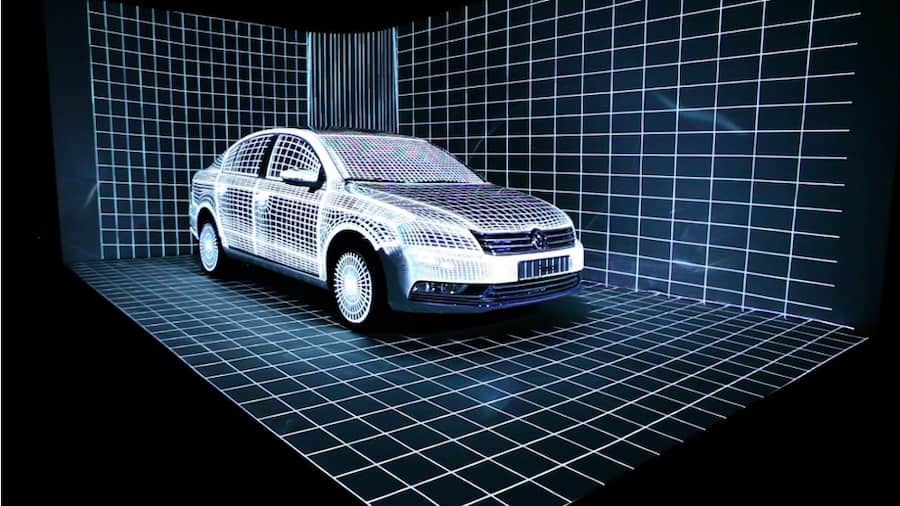
And, if you think bigger, such as the design of a new rollercoaster where building mock-ups are practically unfeasible for various reasons (e.g. timing and financial), 3D modelling and simulations can really bring added value.
Think safety first
VR can also be used for training experiences in critical industries. It’s the closest to the real thing for impactful experience-driven training with high retention rates. Employees can learn to make decisions about harsh circumstances or train high-risk maintenances in a physically safe way through an immersive simulation.
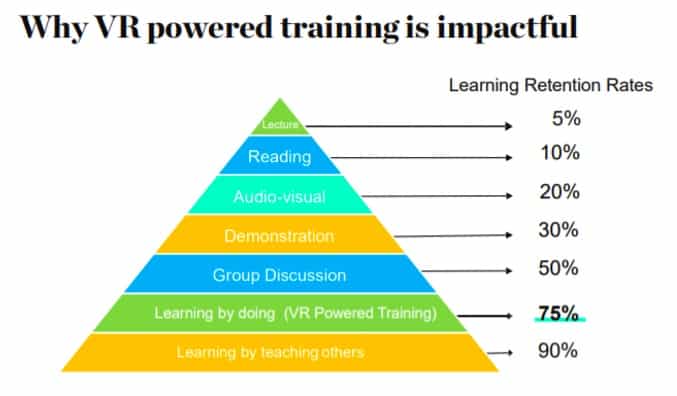
In fact, the safety factor alone can be enough to justify a business’ investment in VR. This is due to the significant drop in employee injuries and the costs related to accidents both in training and on the job!
Group VR for businesses
VR technology has already proven to be very helpful in the field of emergency training. It is also a powerful design and mock-up tool in many other contexts.
According to the before-mentioned Capgemini report, 82% of the surveyed businesses already implementing VR (or AR) indicate that the operational benefits even exceed the initial expectations. So, when are you switching to VR?
Whatever your professional group 3D visualization needs, Barco’s portfolio consists of different group VR solutions. From the traditional one-sized approach of a powerwall, over the flexibility of a Canvas to the totally immersive experience of a Cave. You can choose between a variety of different components, including 3D projectors, coated screens, LED displays and screen management.
VR solutions
Barco’s powerwalls are large-screen display walls. These offer a wide range of possibilities to get exactly the solution you need for your application. Even the setup is completely user-definable: you can select front or rear projection, single or multi-projector, etc.
Barco’s Canvas is the first VR solution designed for meeting rooms. Consisting out of 3 projection surfaces, with each wall angled at 135 degrees, it can be used both for regular meetings and (using regular 3D glasses) for group VR.
A Cave display is a multi-sided immersive environment that offers great levels of immersion. Barco’s customized cave displays can have any number of sides, ranging from two to six, in any size you want.
